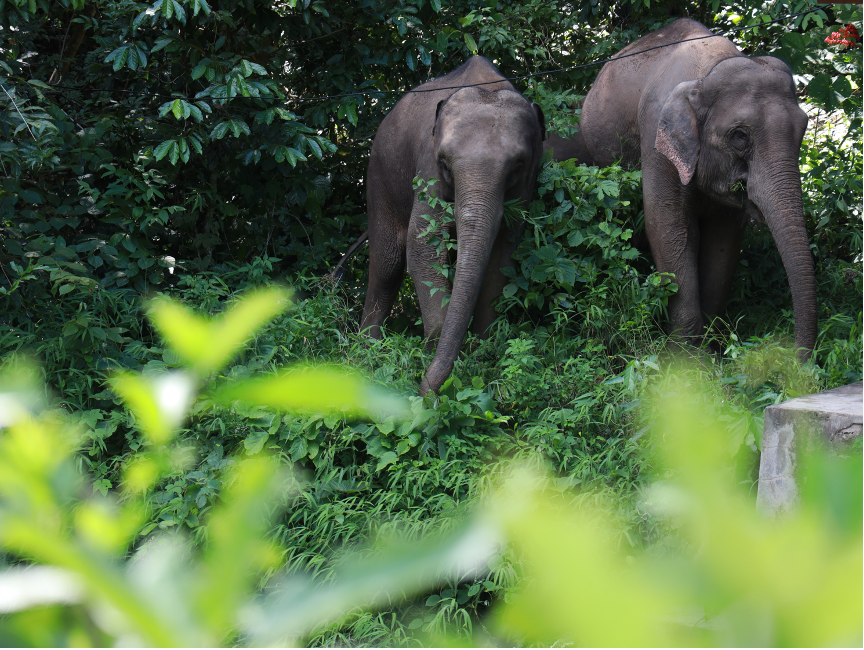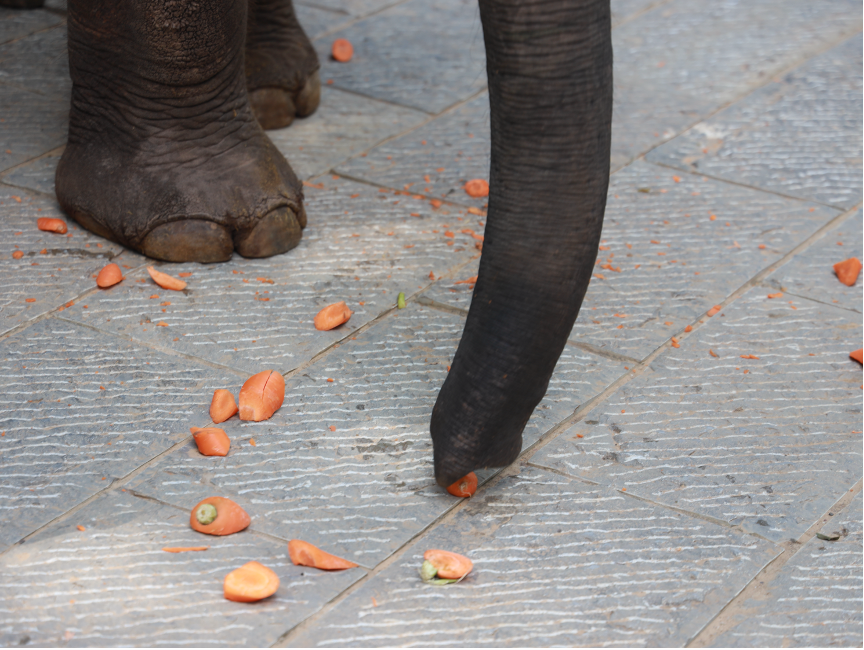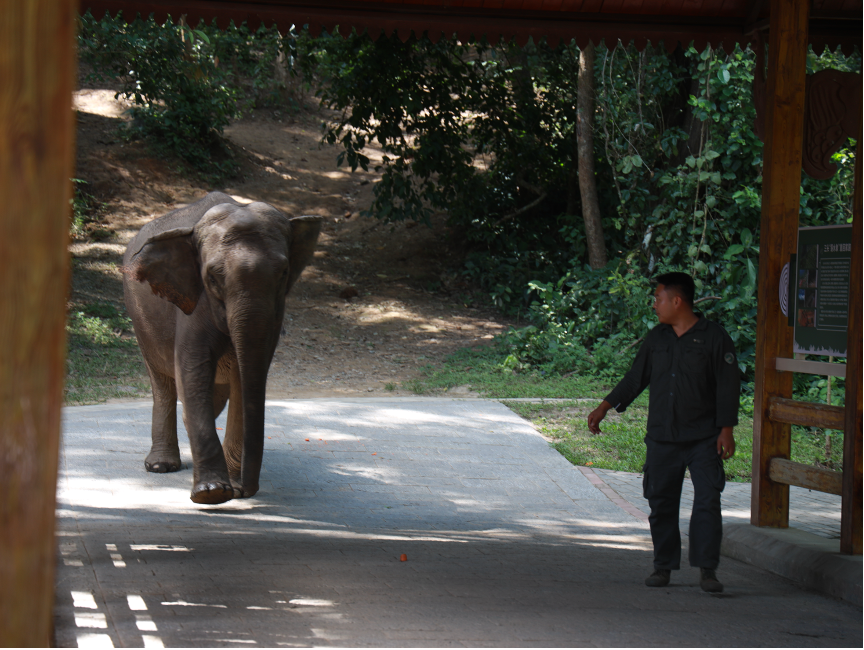15
2023.08
The ultimate level of animal care workers might be treating animals like humans.
"I walked through all these years with Ran Ran and I always had a wish, that is, to help take care of her child," said Xiong Chaoyong. His dream come true in September 2019 when Ran Ran the elephant gave birth to a baby, after which a video showing him playing the guitar to the baby elephant went viral.
Xiong, 41, is an experienced mahout, or "elephant daddy", as is called at his working place. He has been taking care of the giants at the Asian Elephant Breeding and Rescue Center in south Yunnan’s Xishuangbanna for 18 years.
An elephant daddy's job is different from a traditional zookeeper's. They rescue and take care of orphan elephants who have been abandoned by their families due to injuries and other reasons.

Elephants in the Asian Elephant Breeding and Rescue Center. Photo by Lin Yuxuan
As World Elephant Day arrives on August 12, elephant daddies are also ready to celebrate their own festival. For the mahouts, the greatest wish may already be indicated by their anthropomorphic nickname, which implies that humans and elephants are close and similar to each other.
"There is a yearning for harmony between humans and elephants," Bao Hong, a 24-year-old "elephant doctor", said as he recalled several human-elephant conflicts in the region that had nearly occurred in the past. He majored in medicine and has been an elephant doctor as well as "elephant daddy" since he left school four years ago.
Bao Hong mentioned how he gradually overcame his fear of these giant creatures. "You will find the creature very intelligent after you have been with them for a long time, and it can understand what people say," Bao said. The Dai language of the local ethnic group is used in elephant training. "When you are to take him back after dining, just speak Dai language. He will make a sound if he doesn't want to go." This is how elephant daddies and their children communicate.
"Elephants are feeling more and more secure," as Xiong Chaoyong said, it is now people rather than elephants that sidestep. His words reflect an interesting fact, that interestingly, the Asian elephants seem to have regarded humans as their companions of the same kind.

The baby elephant "Long Long" is eating. Photo by Lin Yuxuan
Xiao Qiang, or "Strong", was an orphan elephant aged only 8 months when found and tried hard to join a new herd. Things didn't go on as he expected. The hungry baby elephant had no choice but to steal the milk of his companion elephant, which caused resentment and attacks from the other elephants. The herd left him a week later while Strong stayed in the nature reserve. Elephant daddies soon reached out and rescued him.
"His mother or grandmother may have told him that this area is the safest." Xiong explains why Strong finally seeked help from the human beings. Elephants have the IQ of a 5-6 year old human child and are very smart. He knew that other herds would no longer accept him.
"Elephants choose to hand over the problem to humans and seek our help," he continued, "This is because Xishuangbanna has worked hard to protect Asian elephants over the years, and a deep sense of trust has been built between people and elephants."

Elephant Daddy. Photo by Lin Yuxuan
As the saying goes, like father, like son. Xiong Chaoyong said at first Ran Ran ("Nature") only followed her "daddy" to walk, stop or eat, as if her daddy were also an elephant. It took more than a month to master her elephant life. The indefatigable elephant daddies have dedicated themselves to helping these abandoned elephants return to their society and live an active life. This is vital in a modern era where human and elephant living spaces inevitably overlap.
In the late 1980s, there were about 180 wild Asian elephants in Xishuangbanna. The number rose to more than 250 in 2012 and has now increased to about 300. Many elephants can often be seen in human gathering areas. To prevent human-elephant conflicts, the Asian Elephant Breeding and Rescue Center has set up emergency mechanisms, including an app able to warn villagers if there are wild elephants nearby, and insurance to cover the economic losses caused by elephant activities.
撰文 / 林宇轩
排版 / 彭欣怡

2023.08.14 13:45
05
2025.09
05
2025.09
09
2025.06
 28:32
28:32
2025.06.19 08:55